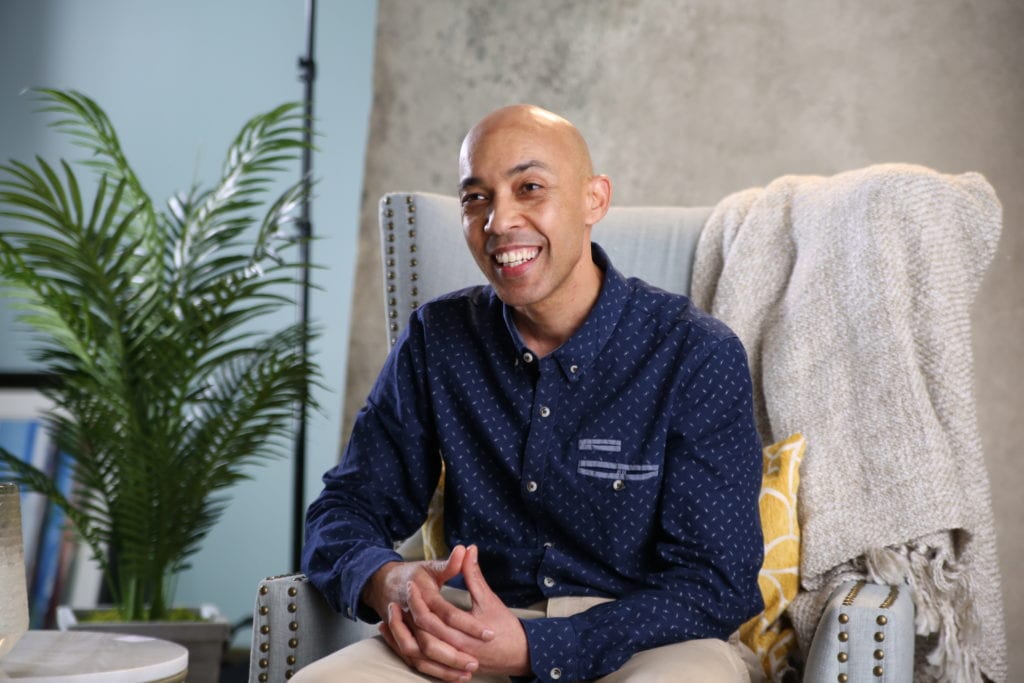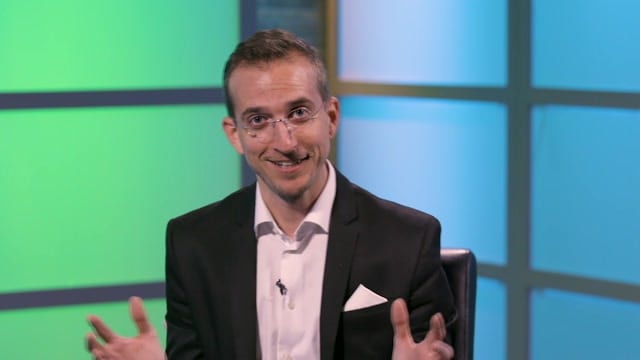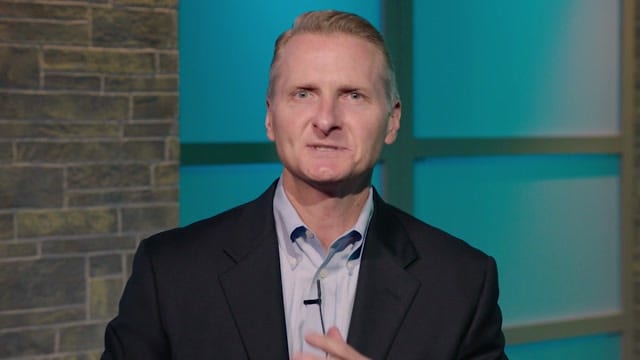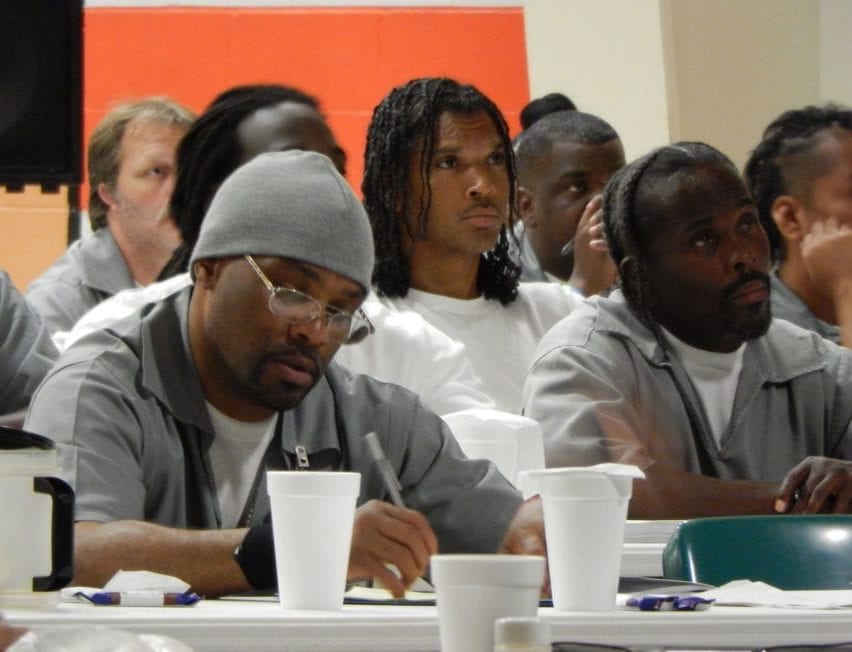
It is your passion that empowers you to be able to do that thing you were created to do.

It is your passion that empowers you to be able to do that thing you were created to do.

Young people and adults are struggling with an orphan heart; it is fatherless generation.
We have a leadership crisis in our country. We are in a very difficult position economically. We are also struggling spiritually. There is an “orphan heart” we struggle with in our nation. We are not just dealing with physical orphans as a result of HIV and AIDS* where many parents are dying as a result of this pandemic, we’re also struggling spiritually as psychological and emotional orphans. Young people and adults are struggling with an orphan heart; it is fatherless generation. This is a big struggle for us in our country.
 How do we reach out to the people who are crying out in desperation, and bring about change in their lives so they can experience the love and acceptance of God? So they can know what it means to be a child of God and to walk in that kind of freedom and that kind of blessing?
How do we reach out to the people who are crying out in desperation, and bring about change in their lives so they can experience the love and acceptance of God? So they can know what it means to be a child of God and to walk in that kind of freedom and that kind of blessing?
Personally I think God is raising up people who are recognizing the need and saying, “I want to make a change. I want to be an influencer.”
Through The Global Leadership Summit, we have seen people who want to be influencers in the community, which is key. They are saying, “Can I use the tools that I have been given to partner with you so that we can make a better country? I want to influence the country and the leadership, and through that, make the necessary changes so the country changes and becomes productive, not only for our generation, but for generations to come.”
We cannot stay where we are. We keep looking at the vision and see how God will take us there.
We can all work together in order to make the necessary changes, not just now, but in generations to come.
We have a huge passion to see more leadership development in our country. We believe as the leaders get better, the country wins and our whole county improves. We can influence the government, education, religion, health care, business, etc.
 Within our team that brings the GLS to Swaziland, we select people from each of these sectors which we call “the seven mountains.” We identify key leaders within those seven mountains and then we spend time with them almost on a weekly basis just to influence them, encourage them and motivate them as they invite leaders from their different sectors to attend the Summit. We work very hard to touch top leaders because this trickles down and ultimately effects everyone.
Within our team that brings the GLS to Swaziland, we select people from each of these sectors which we call “the seven mountains.” We identify key leaders within those seven mountains and then we spend time with them almost on a weekly basis just to influence them, encourage them and motivate them as they invite leaders from their different sectors to attend the Summit. We work very hard to touch top leaders because this trickles down and ultimately effects everyone.
My primary motivator in pursuing this vision is Christ’s love. It compels me forward. I have a passion for the lost. I care about the things God cares about whether it is leadership for a country, the prime minister, any of the leaders in our seven mountains or our young people. All of this is influences the next generation.
We cannot stay where we are. We keep looking at the vision and see how God will take us there.
The Global Leadership Summit provides tools and equips the leaders of our country in all the spheres. It helps us recognize the situations we are dealing with on a day-to-day basis, creating awareness. But it’s not just leaving it there—the Summit helps us figure out how to bring about change. This is fundamental in the whole process.
Just to be a catalyst for change has really stirred up a passion within me to keep striving forward.
Leaders see the value in the Summit. Some of our leaders have come alongside and said, “I want to have a greater influence. I want to sponsor tickets so more people can attend.”
 As a result of the Summit, bigger organizations are developing a servant’s heart for the next generation.
As a result of the Summit, bigger organizations are developing a servant’s heart for the next generation.
Because of our passion for the next generation, we hosted our first Youth GLS event in 2017. We invited 10 of the top leaders from all the schools, primarily from grade 10-12, and they brought students, teachers and principals with them.
We created an atmosphere where people could sit around a table with the CEO of an organization at the head of every table. We had both the video teaching and the small group discussion. Then the CEOs would speak into the lives of everyone sitting around the table.
 One of the key things we have seen as a result of the youth event is a desire for peers to mentor peers, and see how people have grown in their interactions with one another. Having a CEO of a big organization sitting at the table was enough to inspire them to say, “I can achieve this if I just keep moving” and for them to then motivate their peers.
One of the key things we have seen as a result of the youth event is a desire for peers to mentor peers, and see how people have grown in their interactions with one another. Having a CEO of a big organization sitting at the table was enough to inspire them to say, “I can achieve this if I just keep moving” and for them to then motivate their peers.
 Because of the Summit, I have become a better father and a better husband. God has really challenged me to become a better leader and influencer in that capacity. It also instilled a passion within me to make a difference in people’s lives, and for God to use me to be an influence one life at a time. Thank you very much for the opportunity to learn and grow and be a part of an amazing movement where God is using us in such a supernatural way. We cannot even begin to measure what He is doing. Just to be a catalyst for change has really stirred up a passion within me to keep striving forward.
Because of the Summit, I have become a better father and a better husband. God has really challenged me to become a better leader and influencer in that capacity. It also instilled a passion within me to make a difference in people’s lives, and for God to use me to be an influence one life at a time. Thank you very much for the opportunity to learn and grow and be a part of an amazing movement where God is using us in such a supernatural way. We cannot even begin to measure what He is doing. Just to be a catalyst for change has really stirred up a passion within me to keep striving forward.
Thank you for your generosity and for all the love and compassion you have shown.
On behalf of myself and Swaziland, I want to say thank you very much for the contribution you have made to bring the GLS to our country. Without you, I do not think we would have experienced the impact we have. Thank you for your generosity and for all the love and compassion you have shown. May the Lord kindly repay you for the way you have shown kindness to us.

*It’s important to know that HIV/AIDS hit Swaziland harder than any other country in the world and has the notoriety of having the worst HIV percentage rate in the world. At one time, the statistic reflected that 9 out of 10 children would not make it to the age of 31. For more info from the CDC, click here.

Hospitality is a game changer. To be fair, most lists of core values, corporate pillars, cultural mandates or “reasons we exist” posters won’t include hospitality in the top ten.
But to create a winning organization, hospitality should be front and center.
I’ve worked on some great teams over the years and have seen great hospitality in action. One of the places I learned the most about leading through hospitality was Lost Valley Ranch, an incredible 4-diamond guest ranch in Colorado. In fact, one of the taglines for Lost Valley is “The Brand of Western Hospitality.” That’s a big statement, and one that was always front of mind.
Don’t just talk about it. Make it happen. Your work can be a great example of your attitude and commitment to service.
At Lost Valley Ranch, we took great pride in our ability to create a great experience for our guests through unmatched hospitality and customer service. Truly serving guests was part of the DNA of the staff—a requirement, not just a hopeful add-on. It allowed us to stand out in the hearts and minds of our guests.
Customers left with a memory, not just a vacation.
Ultimately, your focus on hospitality will build a bridge of credibility. Your goal should be to turn customers into friends, and friends into family.
Here are a few of the ways we did that:
1. Treat someone like you would want to be treated—the “Golden Rule.” It really does work. And it makes sense. Common sense. Use it.
2. Remember someone’s name. Always. Especially when you’ve met them before or talked with them before. Remembering a name establishes your guest or customer in a place of honor.
3. Let your actions speak way louder than your words. Don’t just talk about it. Make it happen. Your work can be a great example of your attitude and commitment to service.
4. Walk with your guest. This is crucial. Don’t just tell your guests where to go. Actually, walk them to the place where you want them to end up. If you have to hand the relationship off to someone else, make sure you walk them to that other person, introduce them and hand them off well. The same applies if you’re communicating over the phone or through email. Constantly make sure you are “walking” with that person through the process.
5. Anticipate. Stay a step ahead of your clients or guests. Don’t wait for them to ask for something. Be proactive. Figure it out before they even need it. Make your guests the hero.
6. Go the extra step. Have a “+1” type of attitude and demeanor. Don’t just anticipate, but actually do more than what is expected or required of you. Make memories for your client or guest by wowing them with the “above and beyond.”
7. Engage in meaningful conversation. Serving creates an opportunity for impact—it builds a bridge. So, make sure to connect with your guests or clients through conversation when it’s appropriate. Understand who they are by understanding what they read, what they watch, where they travel and what their interests are. If you deal with families, learn the names of their kids and their hobbies. And look them in the eye when talking. Little things add up.
Great hospitality requires that your customers and guests feel empowered because they know you’ve listened to their requests.
8. Give permission. Make sure your entire staff and everyone in the organization feels empowered to respond immediately to a customer service issue. Empower your employees at every level in the organization to respond and resolve.
9. Own the relationship and the result. Your answer should never be “that’s not my job.” Take initiative to see the problem or the issue through to the very end. Ritz Carlton provides a certain amount of discretionary dollars for all their front-line employees to solve problems on the spot.
10. Your customer must be heard. Great hospitality requires that your customers and guests feel empowered because they know you’ve listened to their requests.
As Danny Meyer, CEO of Union Square Hospitality Group said in his recent GLS talk, “Great leadership requires a strong HQ—Hospitality Quotient.” He went on to say, “Hospitality is how we make you feel when we deliver service in our restaurants. Our employees live this value. They are most satisfied when someone else feels better, and ultimately gets better.”
That’s hospitality.

Jason Jaggard describes the techniques he uses to manage anxiety in his life and in his leadership.
Given the increasing diversity among customers and employees, organizations that attend to cultural intelligence are more successful.

No, it’s not just you.
If you’ve ever doubted that you had your boss’s full attention while her laptop is open in front of her, stop doubting. Despite her protests that “I’m listening, go ahead.”
She wasn’t.
Decades ago, research settled the question of whether you and I can do two things at once. We can’t. But emerging research shows that even the simple presence of a cell phone—much less its glowing screen and constant beeps—interrupts our ability to connect.
The problem is that manners haven’t caught up with technology. In one online survey, my colleagues and I found that nearly 9 out of 10 people say that at least once a week, their friends or family stop paying attention to them in favor of something that’s happening on their digital devices. And 1 in 4 say these interruptions have caused a serious rift with a friend or family member.
But emerging research shows that even the simple presence of a cell phone—much less its glowing screen and constant beeps—interrupts our ability to connect.
So, what do you do when faced with these interruptions? According to a VitalSmarts survey, not much. Only 1 in 10 people speak up to the offender, while the vast majority remain silent by either ignoring the behavior (37%), giving dirty looks or showing disapproval in other nonverbal ways (26%), or simply walking away (14%).
Too many of us are waiting for social norms to evolve naturally and catch up with a raft of novel social situations we face. But they won’t. Norms develop when a critical mass of people begin to confront those who violate them. Each time someone is called out, not only do they learn, everyone who witnesses the awkward moment, takes mental notes as well: “Note to self: Answering my phone in the middle of a funeral does not make me popular.”
So how can we accelerate this necessary change, especially in the workplace? Let’s say, for example, you’re frustrated with coworkers who interrupt you to answer phone calls or texts. Or you are tired of presenting in a business meeting to people who are checking their emails.
And though it may seem awkward and uncomfortable, our collective response to these behaviors will establish new norms of modern courtesy.
You have to adhere to the norm—and speak up when others cross it.
Here are a few ways to begin the process:
Today’s technology allows us to communicate quickly and effectively with a large network of friends and acquaintances we would not have access to otherwise. While there are great benefits to these advancements, they should not trump social norms of respect, courtesy and politeness—especially with those we care about most. It’s time we learned to speak up and address these interruptions and safely build mutual understanding of their appropriate use in our life.
This article originally appeared on The Harvard Business Review.

John Venhuizen discusses why it’s important for business leaders to identify a vision that is bigger than just making money.

When The Global Leadership Summit and Prison Fellowship partnered to broadcast the Summit to prisoners, it was to give men and women who are incarcerated the tools they need to become effective leaders. In 2015, the Summit welcomed 1,500 prisoners in 11 U.S prisons. In 2018, the Summit was live-streamed to incarcerated men and women at more than 60 prisons.
Leadership matters—even in prison.
This letter came to us from Nathaniel, who is incarcerated at Muskegon Correctional Facility in Michigan. He also gave a sacrificial gift of $10 to expand the GLS so more people could experience it globally. We’re grateful for kingdom-minded leaders like Nathaniel!
The Global Leadership Summit has been an abundant well, filled with living waters here in Muskegon. I witnessed chains of doubt and mistreatment falling from my fellow prisoners during this amazing event.
Please pray for all the men here, that we use our influence to steer one another in the right direction for God’s glory, honor and praise.
Again, every dynamic speaker encouraged us at Muskegon Correctional Facility to praise God and sing with puzzling grace until the prison doors open. Christ’s church is the head and not the tail. Jesus is the best example anyone can ever have as a master teacher with sway in the lives of all of his disciples. He showed compassion to every lamb and sheep!
The disciples watched Jesus ascend into heaven and received the three times portion of the Father, the Son and the Holy Ghost. We share and respect the same anointing as the early church! We are enlisted as soldiers in God’s army.
Please pray for all the men here, that we use our influence to steer one another in the right direction for God’s glory, honor and praise. Pray that all of the women who are reached while incarcerated are blessed by your messages of equal love.
Please pray for my financial seed of $10 that I am sowing into the Summit. I have named my seed “the greater kingdom” seed and am expecting God will bless it!
The world is made rich with grace, redemption and forgiveness. Thank you, GLS.
God bless the Willow Creek Association.
Grace and peace,
Nathaniel

Levi Lusko is the lead pastor of Fresh Life Church—a multi-site church located in Montana, Utah, Oregon and Wyoming, with a vision to make Jesus famous and teach the Bible in a way people can understand. In his new book, I Declare War: Winning the Battle with Yourself, he explores the essential challenges of self-leadership.
WCA: You’re a leader who has had a lot of success at a young age. Yet, in this book you are incredibly honest about the internal struggles you have waged. Why this book? Why now?
LEVI LUSKO: People are talking a lot about the struggles of failure: what to do when you fail, how not to give up when you fail, what you learn when you fail. But there is not as much leadership advice out there about the struggles that go with success.
When you succeed, there are valleys amid the mountain tops. You have an outstanding service at church. Your book gets published. But then you start to wonder if you are a one-hit-wonder. After success, you can find a melancholy that you need to process. Some of the most difficult moments come in the midst of success. There are struggles in success as well as failure. Success is not the end of your story.
There is a saying, “Nothing fails like success.” That’s because once you succeed, it’s easy to let your guard down. Think about King David in the Bible. He wasn’t tempted by Bathsheba until he was king. The Native Americans had a tradition of breaking camp in both good times and bad. If they couldn’t find buffalo or food, they broke camp. But when they did find buffalo and food, they also broke camp because they understood that they would get too complacent if they stayed. To win, we need to guard our souls, both in success and failure.
Quit trying to lead other people until you lead yourself.
WCA: A common leadership axiom is that you can’t lead others until you learn how to lead yourself. This book felt like your personal manifesto on self-leadership. Is that what you set out to do?
LUSKO: I’m glad that came through in the book. Yes, absolutely. My message is: quit trying to lead other people until you lead yourself. It’s a lot easier for me to stand in front of 300 people and give a sermon that tells them what to do than to follow through myself. If you’re not leading yourself well, you don’t have the moral authority to lead others.
WCA: You talk about declaring war on the version of yourself that you don’t want to be. Why is do you use the metaphor of battle to describe this struggle?
LUSKO: Because it’s bloody. It’s a gruesome and bloody thing. The Bible is clear that this is a battlefield. Paul says in Romans 7:15, “I do not understand what I do. For what I want to do I do not do, but what I hate to do I do.” The Bible uses the image of battle. The conflict is clear.
WCA: You say, “You cannot declare victory in a battle you don’t admit you’re in.” Why is admission the first move in the battle?
There is a version of Levi I can’t stand. He buys compulsively on Amazon when he’s stressed. He’d rather be on Instagram than writing. He’d rather listen to what a stranger has to say about him than what Jesus has to say about him. I hate this guy.
Admission is the first movement in the battle. The enemy would have us believe that the conflict is not going on. But there is a conflict. The reason the flesh has such control over us is because it has controlled us longer. When we give ourselves over to Christ, we have to adjust to the change in control. We have to call that out and say, “I Declare War” on the part we don’t want.
No one has ever accomplished something great with only half of their heart. When you commit yourself, you accomplish what you set out to finish. You have to be 100 percent behind an idea. When you set yourself in a singular direction, energy comes to you. I believe it is God’s energy entering into you.
WCA: In the war for our thought lives, one key battlefield is negativity. Negativity and positivity are concepts leaders navigate every day. How do you battle negativity in your life?
LUSKO: Negativity creeps in through little things like self-doubt, insecurity, overthinking, self-condemnation. I am harder on myself than I am on anyone else.
I once asked myself, “How would you answer another leader who struggled with self-doubt? Would you berate him?” Of course, if it were another leader, I would encourage him. So why do I berate myself? Negativity cannot lead to a positive life. It affects the polarity of our mind.
Positive and negative forces are like the magnetic currents of a compass you take into the woods. Negativity becomes a self-fulfilling process. For example, if I want to buy a Dodge Durango, I start studying Dodge Durangos. Suddenly, I see them everywhere. That’s because our brain looks for what we want to see. Our brain gets a reward for finding what we want.
So, if you don’t choose to take control of the polarity of your mind, you will succumb to your negative thoughts.
WCA: Another battlefield in our thought lives is the temptation to wear masks. What are some common masks that you’ve seen in leaders?
LUSKO: I see masks on myself—and I think a lot of leaders can relate. Sometimes it’s the funny nervous laugh that is trying to laugh off something I shouldn’t. Sometimes it’s the braggard mask that says, “Oh, you went on vacation to Arizona? That’s great. We went to Fiji.” Or “We just added nine campuses to our church.” Leaders do this. What I’ve realized is when I wear the braggard mask, I miss listening to and celebrating with another person. Sometimes, it’s the know-it-all mask of “I already knew that.” When you say, “I already knew that,” you are letting the other person know you are one step ahead of them. But the reward is hollow. Take those masks off. This is one little thing I’ve stopped doing that has changed my life.
No one has ever accomplished something great with only half of their heart. When you commit yourself you accomplish what you set out to finish.
Also, anything you get when wearing a mask, you must use while wearing the mask. Whatever you wear to attain, you must wear to retain. You have to wear it to lunch. You have to wear it to bed. In this Instagram culture, it is so easy to project an image—a mask—that is untrue. It is so much better to be authentic. It’s so much better to come as you are.
WCA: In the final chapters of your book, you write about Phantom Power—or the Holy Spirit. How is the Holy Spirit the ultimate self-leadership weapon?
LUSKO: Some people are very leery about the subject of the Holy Spirit. Maybe they heard a pastor on TV talking about it in a way they didn’t understand. In I Declare War, I found several great analogies for the Holy Spirit. To me, the Holy Spirit is the difference between someone coming to help you move with a truck instead of you moving your own furniture in your own small car. The Holy Spirit gives you the power to live a better life. That is the best analogy I’ve ever heard for the Holy Spirit. I also like to compare the Holy Spirit to a scene from Iron Man 3 when Tony Stark has to drag his Iron Man suit (a suit that should be making him fly) down the road.
Religion is not about us keeping up with rules. Jesus did not want us to be like that. He wanted us to carry him inside of us. He wanted us to fly. Look at Romans 7:6 , “But now, by dying to what once bound us, we have been released from the law so that we serve in the new way of the Spirit, not in the old way of the written code.” Why would I want to rely on self-help when I’ve been given God’s help? That help is the Holy Spirit.
To learn more about how to win the battle with yourself, check out Levi Lusko’s book here.

Every Tuesday and Thursday morning at 8:30 am CST, our staff gathers together to pray for our partners across the globe.
Please join us in prayer as we lift up the international Summit events happening this weekend. Pray for God’s anointing on every detail and that those who attend would leave feeling equipped, inspired and encouraged to lead the change they long for in their communities.
And if you have a prayer request, please share it with us. We would be honored to pray with you!
Witney, United Kingdom and Ireland
Diadema, Brazil
Campo Grande, Brazil
Chandigarh, India
Nagpur, India
Mbabane, Swaziland
We have a leadership crisis in Swaziland. We are in a very difficult position economically. We are also struggling spiritually. There is an “orphan heart” we struggle with in our nation. We are not just dealing with physical orphans as a result of HIV and AIDS* where many parents are dying as a result of this pandemic, we’re also struggling spiritually as psychological and emotional orphans. Young people and adults are struggling with an orphan heart; it is fatherless generation. This is a big struggle for us in our country.
Bayelsa, Nigeria
Erseka, Albania
Meru, Kenya
Kitale, Kenya
We’re praying for a movement of leaders in Kenya who view people as men and women created by God. As leaders, we are here to serve so people can achieve their God-given calling.
Pretoria, South Africa
Zagreb, Croatia
Ouaga, Burkina Faso
Ouagadougou, Burkina Faso
Aberdeen, United Kingdom and Ireland
Cambridge, United Kingdom and Ireland
Preston, United Kingdom and Ireland
Milton Keynes, United Kingdom and Ireland
Orpington, United Kingdom and Ireland
Cocody, Ivory Coast
Lome, Togo
Uyo, Nigeria
Kohima, India
Taraba, Nigeria
Jalingo, Nigeria
All throughout our history in Nigeria, we have experienced a persistent leadership crisis where leaders ‘seek to be served’ rather than ‘seek to serve.’ Until now, the political class of leaders epitomized this kind of leadership, preferring to use their titles as tools of oppression by laying claim to exorbitant allowances and furnishing extravagant lifestyles at the expense of the people they were to lead. Unfortunately, these same issues began to bleed into the body of Christ. Each year, as we were exposed to the subject of ‘servant leadership’ at the Summit, the excesses and weaknesses of our system became apparent. This led to a paradigm shift and a renewed vigor towards attaining higher leadership capacity to project the dignity of the body of Christ in Africa. Please pray for this movement.
Terrassa, Spain
Taipei, Taiwan
Lagos, Nigeria
Yaounde, Cameroon
Dakar, Senegal
Bethlehem, Palestine
Our country has experienced more than 70 years of conflict, war and uprisings. There is no peace in the region. Directly working with growing leaders, establishing the church and impacting the community requires experience and a lot of heart to reach out to our nation. We are set in the place where Christianity was born, but sadly there are few Christians. I want to impact my nation for Christ. I believe we can reach millions out of this small place in Bethlehem.
Sao Fidelis, Brazil
Wellington, New Zealand
Tampere, Finland
Riga, Latvia
Eket, Nigeria
San Salvador, El Salvador
Drachten, Netherlands
Mysore, India
Kolkata, India
Cochabamba, Bolivia
La Paz, Bolivia
Maracaibo, Venezuela
My dream is to be able to impact the lives of at least 100,000 Venezuelan and world leaders who can learn, live and lead others towards leadership principles. I pray their influence on society through principles and values based on the bible, can raise a generation that manages to govern with the fear of God in all spheres of influence.
N’Djamena, Chad
Strasbourg, France
Bo, Sierra Leone
Bishkek, Kyrgyzstan
Brownsville, United States
Escuintla, Guatemala
Quetzaltenango, Guatemala
There are a lot of bad things happening in my country right now. There’s a lot of poverty, corruption and violence. But I have a dream. Maybe it’s just in our minds right now, but there is a Guatemala we want. And I know if we follow Jesus and His example, we can change our environment one person at a time, one action at a time. We can change our Guatemala.
Mende, Nigeria
Puerto Barrios, Guatemala
San Miguel, El Salvador
San Pedro Sula, Honduras
Almaty, Kazakhstan
Piedras Negras, Mexico
Puebla, Mexico
Zapopan, Mexico
Puente Alto, Chile
Lagos, Nigeria
Santiago, Chile
Madurai, India
Ulaanbaatar, Mongolia
Shanghai, China
Hradec Kralove, Czech Republic
Matadi, Democratic Republic of the Congo
My dream is to see a new generation of leaders transforming the church, city and country for the better. The GLS has helped shed light on my vision that has felt somewhat blurred. The light has helped me overcome obstacles in order to accomplish my dream!
Seringueiras, Brazil
Antananarivo, Madagascar
“We welcome and encourage comments on this site. There may be some instances where comments will need to be edited or removed, such as:
If you have any questions on the commenting policy, please let us know at heretoserve@globalleadership.org”
Recent Comments